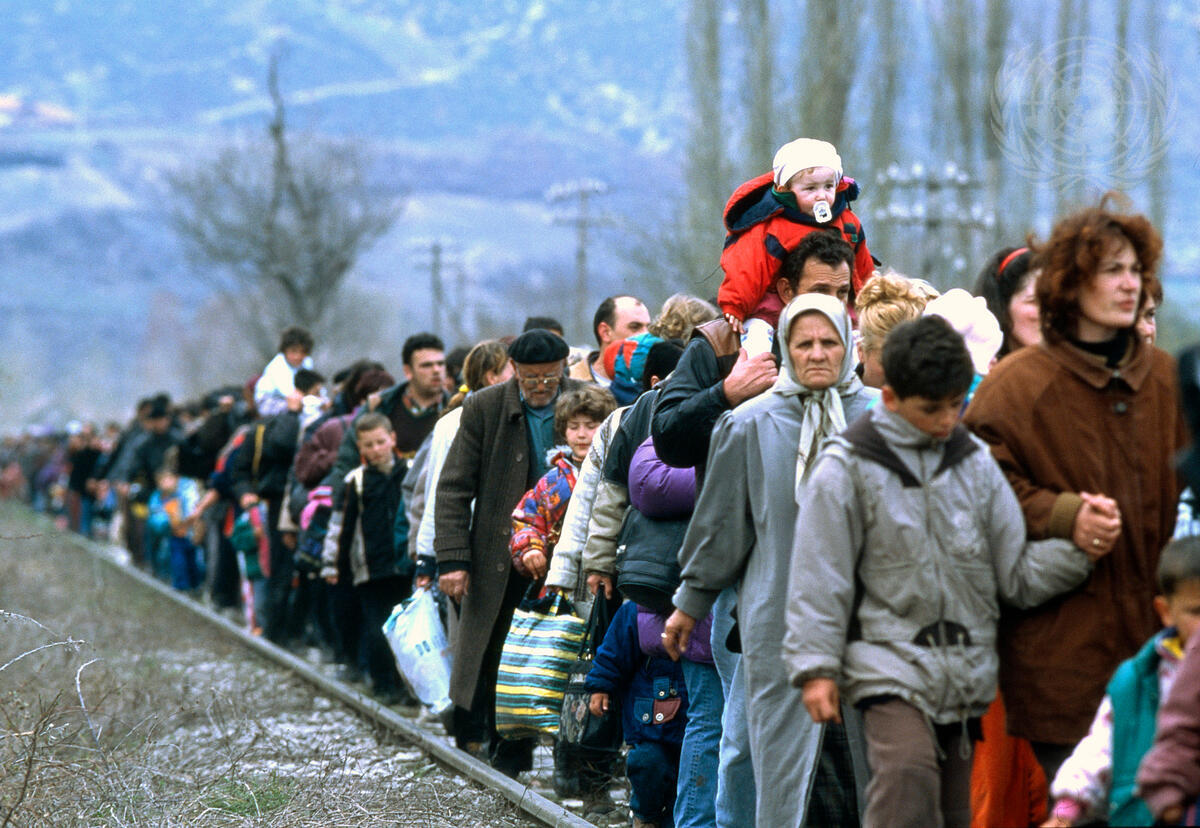OHCHR Report: A call to safeguard migrants in the central Mediterranean Sea

Asma,* a young pregnant woman from Burkina Faso, had to give birth in the perilous Mediterranean route from Libya to Europe, while many other people on the same boat, including children, perished hunger and thirst, and some of them died. Her partner died too during a violent storm.
As Asma, many other migrants are compelled to make the dangerous journey through Libya to Europe every day, putting their lives at risk.
The UN Office of the High Commissioner for Human Rights has been collecting Asma's and many others' testimonies as part of a new report published in May 2021 - Lethal Disregard: Search and rescue and the protection of migrants in the central Mediterranean Sea - that delivers first-hand accounts of migrants travelling through Libya to Europe, calling on the Libyan authorities, European Union Member States and institutions, and other relevant actors, to urgently reform their search and rescue (SAR) policies and practices in the central Mediterranean Sea.
There is an urgent need to protect the safety, dignity and human rights of migrants, by supporting the work of humanitarian NGOs and adopting a common and human rights-based arrangement for the timely disembarkation of all people rescued at sea.
According to the report, at least 2,239 migrants died between January 2019 and December 2020 in the attempt to cross the central Mediterranean Sea, crossing primarily from Libya to either Italy or Malta. More than 500 people have died already this year.
The horrors begin with the journey through Libya, where migrants routinely endure dehydration, starvation, arbitrary detention, sexual abuse and ill-treatment. At sea, they risk their lives on overcrowded and unseaworthy vessels, while the Libyan Coast Guard persists in its "reckless and violent behaviour" against the migrants, according to the report.
Various allegations of delays in assisting migrant vessels in distress, as well as pushbacks to Libya from international waters by European authorities, were reported. As in the case of Moussa, a man from Côte d'Ivoire who said he was told by the Maltese authorities to have three options: return to Libya, continue to Lampedusa, Italy, or go to Malta and be arrested upon arrival.
With these premises, it's easy to understand that the arrival to Europe does not necessarily mean that the nightmare ends: migrants often face detention, the threat of deportation, inadequate living conditions and obstacles to receiving primary adequate assistance, such as for food, water, housing and medical care.
The report denounces that the actors involved do not provide sufficient human rights assurances that migrants will be disembarked in a safe place, and calls for "sufficient safe, accessible and regular migration channels", in a framework where the Libyan Government of National Unity and the EU Member States and institutions have to urgently reform their search and rescue policies and practices.
UN High Commissioner for Human Rights Michelle Bachelet said that the answer cannot be just preventing departures from Libya or making the journeys more dangerous, since there is a shared common goal of ensuring that no one feels compelled to put their lives and families at risk on unseaworthy boats in search of safety and dignity.
*All names have been changed to protect identities of interviewees.

